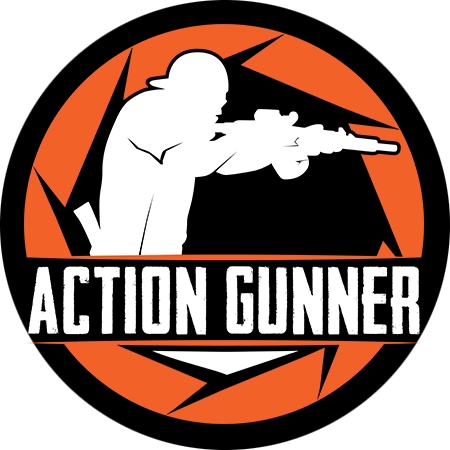The Four Stages of Competence in Shooting Sports: A Shooter’s Journey
The four stages of competence theory, originally introduced in the 1970s, has been widely applied to various fields, including shooting sports. Let’s explore how these stages of competence in shooting sports can help you understand and improve your journey from novice to expert marksman.
Understanding the Stages of Competence in Shooting Sports
Each stage of competence in shooting sports represents a different level of skill awareness and proficiency. By recognizing these stages, shooters can better gauge their progress and focus their training efforts.
Stage 1: Unconscious Incompetence in Shooting Sports
The first stage of competence in shooting sports is often referred to as “unconscious incompetence.” This stage applies to someone who doesn’t realize they’re lacking a skill or skillset in their shooting technique. They may not even acknowledge the usefulness of certain skills in shooting sports.
I vividly recall spending far more time than I should have languishing in this stage. The culprit? Plain old pride. I thought I simply needed to apply more effort to what I was doing, when in reality, I needed to do something completely different. I see this quite often among newer shooters, and unfortunately, some experienced shooters as well. They believe, as I did, that to finish a stage as fast as the top competitors, you just need to step harder on the accelerator.
Unfortunately, most shooters at this stage lack a strong enough foundation in the fundamentals to push that hard. The inevitable result is that the proverbial “wheels fall off.” However, once a shooter realizes their current approach isn’t yielding the desired results, they may finally choose to make a change and start asking the right questions.
Stage 2: Conscious Incompetence in Shooting Sports
The second stage of competence in shooting sports is known as “conscious incompetence.” This stage applies to shooters who understand they are deficient in a particular shooting skill. Although they recognize their deficiency, they acknowledge the value of the skill and desire to acquire it.
For a shooter to change their methods and achieve their goals, they must set their pride aside. Once a shooter begins to train without ego, true growth can occur. Sure, the process may still be frustrating and fraught with mistakes, but the end result is extremely rewarding.
Stage 3: Conscious Competence in Shooting Sports
The third stage of competence in shooting sports is “conscious competence.” This refers to a shooter who has acquired a new skill but must focus intently to execute it. Often, to achieve the skill or complete a shooting task, it must be broken down into steps.
As a shooter, this stage can be both rewarding and frustrating. It’s great to achieve goals and acquire new skills. However, it can be disheartening to compete against other shooters who have mastered those same skills and reached the next level of competence. If a shooter doesn’t let these small frustrations deter them, they will reach the fourth and final level of competence.
Stage 4: Unconscious Competence in Shooting Sports
The final stage of competence in shooting sports is “unconscious competence.” This fourth level is often described using terms like “second nature” or “muscle memory” in the context of shooting skills. Shooters at this stage can perform tasks without conscious thought, even while engaged in other aspects of competition.
To find success in shooting sports, a shooter must reach this fourth level of competence in multiple tasks. For a skill to become “second nature,” it must be trained and retrained. Some believe it takes 3,000 to 5,000 repetitions to reach this level of competence in a skill.
In 3-gun competitions, the best shooters can load their shotgun while navigating the stage without thinking about it. Successful pistol shooters find the front sight quickly while transitioning between targets and positions because they’ve trained these skills repeatedly. In 3-gun, shooters must have “unconscious competence” in many skills to compete with the best in the sport. While natural talent helps, success in shooting sports almost always comes down to who can consistently replicate the fundamentals at speed while performing other tasks.
Applying the Stages of Competence to Improve Your Shooting Skills
Understanding the stages of competence in shooting sports can significantly impact your training approach and overall performance. Here’s how you can apply this knowledge:
- Identify your current stage of competence for different shooting skills.
- Set realistic goals based on your stage of competence in each area.
- Develop training plans that address your specific stage of competence in various shooting skills.
- Regularly reassess your stages of competence in different aspects of shooting sports to track progress.
Conclusion: Mastering the Stages of Competence in Shooting Sports
Now that we’ve explored the four stages of competence and their application to shooting sports, remember that even the best shooters are still working to achieve the fourth stage in some skills. Progressing through these stages of competence in shooting sports is a continuous journey of improvement.
Being honest with yourself as a shooter, addressing your weaknesses, and turning deficiencies into strengths is half of becoming the shooter you aspire to be. The other half is being disciplined enough to resist the temptation to only train the things you enjoy and the skills in which you’ve already reached the final stage of competence in shooting sports.
By understanding and applying the stages of competence in shooting sports, you can systematically improve your skills and achieve your competitive goals. Good luck with your training, and I’ll see you on the range!

